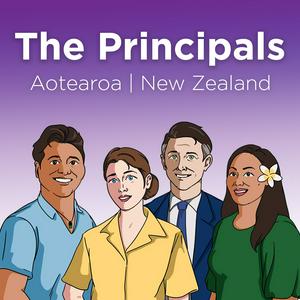In this episode, we continue our conversation about rural school innovation, focusing on how technology connects students and staff to the wider world. Our guests discuss virtual learning networks, digital tools for extending talented students, and the importance of real-world experiences alongside virtual ones. We talk about how rural school clusters share resources and professional development, and the unique freedoms that allow rural principals to turn ideas into action quickly.
Hosted by Eleisha McNeill.
Our guests are:
Lisa Bates, principal at Upper Atiamuri School in South Waikato
Greg Allan, tumuaki of South Makiriri School in Rangitikei
Jane Cochran, vice-president of NZRASLA and tumuaki of Brunswick School near Whanganui
Additional information
RASLA - New Zealand Rural and Primary and Area School Leadership Association https://www.nzrasla.ac.nz
VLN - Virtual Learning Network: www.vln.school.nz
Mind Plus: www.mindplus.co.nz


